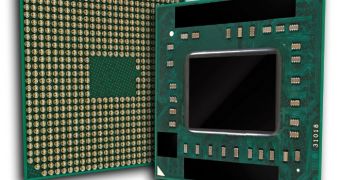While Intel continues to promote ultrabooks, Advanced Micro Devices is content, at least for the time being, to keep referring to such laptops as ultrathin devices.
Speaking of ultrathins, it has become clear that AMD will do its best to secure a stake in this market segment. It wouldn't do for Trinity's clear advantages to go to waste after all.
There's also the fact that it would be strange for AMD to get into the tablet game without putting a good show on the notebook segment.
Sure enough, the Sunnyvale, California-based company has made preparations, most of which will probably be exposed during AFDS.
For those who don't know, AFDS stands for AMD Fusion Developer Summit. It is an event taking place in Bellevue, Washington, between June 11 and 15. We'd be surprised if the corporation didn't announce a bunch of partnerships and OEM products during that time.
And now we finally get to the core of the issue: the price range that AMD is aiming at.
According to Digitimes, the strongest AMD ultrathins will be tagged at up to $899 / 718 Euro, but the cheapest should be sold for $599 / 478 Euro.
If true, AMD will have a much better start than Intel and its OEMs. Ultrabooks were supposed to be the saviors of the notebook market, the ones that would get people to buy laptops again, instead of tablets.
Unfortunately, the initial prices were humongous (well above $1000 / 1000 Euro, exchange rates or not) and the subsequent cutbacks and hardware compromises didn't help much. Though they did allow for cheaper models, they took the “ultra” out of “ultrabook”, as people have begun to refer to it.
AMD is in a very convenient spot right now. Even though it took a long time to develop a chip usable in ultrabook alternatives, the delay worked out in its favor because it means it has special ultrathin parts available right off the bat. It won't have to go through months of underwhelming sales and the tedious component development process that Intel, notebook makers and PC part manufacturers experienced.

 14 DAY TRIAL //
14 DAY TRIAL //